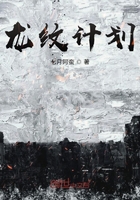3. 变化对他们来说就是现实,永久是人创造的,是一种囚禁。
译__________________
短语应用
1. The everlasting winter is interrupted by summers that struggle and soon yield.
be interrupted by:被……打断;阻断
造__________________
2. ...and they are so many, all reaching out wide and marvellous...
reach out:伸出(伸展,招揽)
造__________________
威斯敏斯特教堂
Westminster Abbey
华盛顿·欧文 / Washington Irving
华盛顿·欧文(1783—1859),享誉国际的文学家,也是19世纪最伟大的美国散文家之一。他生于纽约,在家中是11个孩子中最小的。欧文自幼聪颖,19岁攻读法律。1804年至1806年间游历欧洲,回国后取得律师资格。但是,他对当律师并不感兴趣,而且身体不太好。因此,他改变职业,以写作谋生,并进入仕途,曾任驻西班牙公使,旅居欧洲长达17年。他的杰作《见闻札记》就在这其间完成的,其中的《瑞普?凡?温克尔》已成为妇孺皆知的故事。总之,华盛顿?欧文在世界文学史上有着不可或缺的地位。
On one of those sober and rather melancholy days, in the latter part of Autumn, when the shadows of morning and evening almost mingle together, and throw a gloom over the decline of the year, I passed several hours in rambling about Westminster Abbey. There was something congenial to the season in the mournful magnificence of the old pile; and, as I passed its threshold, seemed like stepping back into the regions of antiquity, and losing myself among the shades of former ages.
I entered from the inner court of Westminster School, through a long, low, vaulted passage, that had an almost subterranean look, being dimly lighted in one part by circular perforations in the massive walls. Through this dark avenue I had a distant view of the cloisters, with the figure of an old verger, in his black gown, moving along their shadowy vaults, and seeming like a spectre from one of the neighboring tombs. The approach to the abbey through these gloomy monastic remains prepares the mind for its solemn contemplation. The cloisters still retain something of the quiet and seclusion of former days. The gray walls are discolored by damps, and crumbling with age; a coat of hoary moss has gathered over the inscriptions of the mural monuments, and obscured the death’ s heads, and other funereal emblems. The sharp touches of the chisel are gone from the rich tracery of the arches; the roses which adorned the key-stones have lost their leafy beauty; everything bears marks of the gradual dilapidations of time, which yet has something touching and pleasing in its very decay.
The sun was pouring down a yellow autumnal ray into the square of the cloisters; beaming upon a scanty plot of grass in the center, and lighting up an angle of the vaulted passage with a kind of dusky splendor. From between the arcades, the eye glanced up to a bit of blue sky or a passing cloud, and beheld the sun-gilt pinnacles of the abbey towering into the azure heaven.
As I paced the cloisters, sometimes contemplating this mingled picture of glory and decay, and sometimes endeavoring to decipher the inscriptions on the tombstones, which formed the pavement beneath my feet, my eye was attracted to three figures, rudely carved in relief, but nearly worn away by the footsteps of many generations. They were the effigies of three of the early abbots; the epitaphs were entirely effaced; the names alone remained, having no doubt been renewed in later times. (Vitalis.Abbas.1082, and Gislebertus Crispinus. Abbas.1114, and Laurentius. Abbas. 1176.) I remained some little while, musing over these casual relics of antiquity, thus left like wrecks upon this distant shore of time, telling no tale but that such beings had been, and had perished; teaching no moral but the futility of that pride which hopes still to exact homage in its ashes and to live in an inscription. A little longer, and even these faint records will be obliterated, and the monument will cease to be a memorial. Whilst I was yet looking down upon these gravestones, I was roused by the sound of the abbey clock, reverberating from buttress to buttress, and echoing among the cloisters. It is almost startling to hear this warning of departed time sounding among the tombs, and telling the lapse of the hour, which, like a billow, has rolled us onward towards the grave. I pursued my walk to an arched door opening to the interior of the abbey. On entering here, the magnitude of the building breaks fully upon the mind, contrasted with the vaults of the cloisters. The eyes gaze with wonder at clustered columns of gigantic dimensions, with arches springing from them to such an amazing height; and man wandering about their bases, shrunk into insignificance in comparison with his own handiwork. The spaciousness and gloom of this vast edifice produce a profound and mysterious awe. We step cautiously and softly about, as if fearful of disturbing the hallowed silence of the tomb; while every footfall whispers along the walls, and chatters among the sepulchers, making us more sensible of the quiet we have interrupted.
It seems as if the awful nature of the place presses down upon the soul, and hushes the beholder into noiseless reverence. We feel that we are surrounded by the congregated bones of the great men of past times, who have filled history with their deeds, and the earth with their renown.
And yet it almost provokes a smile at the vanity of human ambition, to see how they are crowded together and jostled in the dust; what parsimony is observed in doling out a scanty nook, a gloomy corner, a little portion of earth, to those, whom, when alive, kingdoms could not satisfy; and how many shapes, and forms, and artifices are devised to catch the casual notice of the passenger, and save from forgetfulness, for a few short years, a name which once aspired to occupy ages of the world’ s thought and admiration.
...















